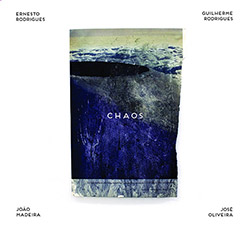
Far from the reductionist/minimal improvisation often associated with the Creative Sources label and the work of both violist Ernesto Rodrigues and cellist Guilherme Rodrigues, this quartet session with double bassist Joao Madeira and Jose Oliveira is a highly charged and energetic affair, improvising through a suite of eight tightly controlled conversations of "Chaos".
In Stock
Quantity in Basket: None
Log In to use our Wish List
Shipping Weight: 3.00 units
EU & UK Customers:
Discogs.com can handle your VAT payments
So please order through Discogs
Sample The Album:
Ernesto Rodrigues-viola
Guilherme Rodrigues-cello
Joao Madeira-double bass
Jose Oliveira-percussion
Click an artist name above to see in-stock items for that artist.
UPC: 5609063407594
Label: Creative Sources
Catalog ID: cs759
Squidco Product Code: 32972
Format: CD
Condition: New
Released: 2023
Country: Portugal
Packaging: Cardboard Gatefold
Recorded in Lisbon, Portugal, on September 24th, 2022, by Joao Madeira.
"According to the Greek mythology, Chaos (kháos) was the first created being, from which came the primeval deities Gaia, Tartarus, Erebus, and Nyx. In Christian theology, the same term is used to refer to the gap or the abyss created by the separation of heaven and earth. In contemporary physics, or better to say contemporary science one uses the concept of deterministic chaos or chaos theory, popularized by "Jurrasic Park"
movies. Wikipedia says: "Chaos theory is an interdisciplinary area of scientific study and branch of mathematics focused on underlying patterns and deterministic laws of dynamical systems that are highly sensitive to initial conditions, and were once thought to have completely random states of disorder and irregularities." Note that deterministic
chaos deals with classical Newtonian physics, where in principle everything is deterministic, according to Pierre-Simon, marquis de Laplace!
For me as a theoretical physicists there are four most important properties of chaos:
1) Unpredictability. Trajectories of individual particles, when observed in time, seem to be unpredictable.
2) Sensitivity to initial conditions. Two trajectories that start infinitesimaly close one to another diverge exponentially in time. This is the famous butterfly effect. A butter y moving its wings in Australia might afect weather in Europe decisively on a few days time scale. The exponent controlling the speed of divergence of such close trajectories is called Lyapunov exponent, after Aleksandr Mikhailovich Lyapunov (1857-1918), a Russian mathematician, mechanician and physicist.
3) Strange attractors. Chaotic trajectories move typically on a very strange manifold with fractal dimension.
For instance a systems with 3 coordinates (i.e. three dimensional) might have a strange attractor, on whihc chaotic trajectories live, of dimension
say, 2.5, not not 3 and not 2!
4) Islands of regularity. In many systems transition to chaos occurs by the appearance of growing island in the space of trajectories, where chaos rules, but with still existing islands of regularity, where trajectories are regular and predictable.
Amazingly, all of these properties of chaos theory, find interpretation in the fantastic album of the quartet.
"Chaos" is a suite in 8 movements. Obviously, there is plenty of, at least apparently unpredictable moments free improvised parts. Obviously, each of the musicians sometimes enter a trajectory, corresponding to regular islands, with full coherence, regularity and consonance.
Yet, this situations are unstable and thus sensitive to initial conditions, and the "close" trajectories of two instrumentalists start to diverge. Of course, it is difficult to say how does it happen in the quantitative way, i.e. determine the Lyapunov exponent. Neither is possible to determine a strange attractor.
Wonderful, inspiring music!!!"-Maciej Lewenstein
Artist Biographies
• Show Bio for Ernesto Rodrigues "He has been playing the violin for 30 years and in that time has played all genres of music ranging from contemporary music to free jazz and improvised music, live and in the studio. His main interest shifted towards contemporary improvised and composed music. The relationship with his instruments is focused in sonic and textural elements. Electronic music was an early influence on his approach to violin playing, which challenges traditional romantic concepts of the violin/viola through use of preparations and micro tuning. Active in different settings on the Portuguese scene for free improvised music, both as a collaborator and in leading his own groups. Music for Dance, Cinema, Video and Performance. Has created the record label Creative Sources Recordings in 1999, which mainly concentrates on releasing experimental and electro-acoustic music." ^ Hide Bio for Ernesto Rodrigues • Show Bio for Guilherme Rodrigues "Was born 1988 in Lisboa, Portugal and started playing cello and trumpet at Orquestra Metropolitana de Lisboa at the age of 7. In 1999 joined Conservatório Nacional de Música de Lisboa to study classical and music theory and in the current year recorded his first album - Multiples - with Ernesto Rodrigues and José Oliveira out on Creative Sources Recordings. Apart from work in music ensembles ranging for contemporary classical to free improvisation, also works with live music poetry, theatre and film-music. After lengthy residency in Lisboa, (1988-2016) moved to Berlin and has been active as composer and improviser in the scene. Worked with some international and renewed artists like Ernesto Rodrigues, Jean-luc Guionnet, Margarida Garcia, Manuel Mota, Alfredo Costa Monteiro, Sei Miguel, Tim Goldie, Jeffrey Morgan, Oren Marshall, Gerhard Uebele, Klaus Kurvers, Gabriel Paiuk, Nicolas Field, Jaime Fennelly, Blaise Siwula, Will Guthrie, Pawel Grabowski, Michael Thieke, Wade Matthews, Leonel Kaplan, Diego Chamy, Gabriel Paiuk, Barry Weisblat, Joe Giardullo, Jassem Hindi, Tisha Mukarji, Masahiko Okura, Taku Unami, Toshihiro Koike, Sharif Sehnaoui, Christine Abdelnour, Alexandre Bellenger, Carlos Zingaro, Romaric Sobac, Nuno Rebelo, Nuno Torres, Naoto Yamagashi, Heddy Boubaker, Gerhard Uebele, Guillermo Torres, Tomas Gris, Carlos Santos, Bruno Parrinha, Miguel Leiria Pereira, Miguel Ivo Cruz, Alberto Cirera, Nuno Morão, Mark Sanders, Dennis Gonzaléz, Alípio Carvalho Neto, Raymond Macdonald, Neil Davidson, David Stachenas, Lisa Ullén, D'incise, Cyril Bondy, Miguel Mira, Rodrigo Amado, Abdul Moimême, Monsieur Trinité, João Madeira, Álvaro Rosso, Gil Gonçalves, Marian Yanchyk, Filipe Passos, Rodrigo Pinheiro, Christian Wolfarth, Thanos Chrysakis, Bechir Saade, Kurt Liedwart, Miguel A. Garcia, Ilia Belorukov, Andrew Lafkas, Gao Jiafeng, Eric Wong, Johan Moir, Casey Moir, Magda Mayas, Matthias Muller, Alexander Frangenheim ... Has performed and toured in all Europe. Released more than 30 albums of his own projects." ^ Hide Bio for Guilherme Rodrigues • Show Bio for Joao Madeira Joao Madeira: "I was born in Lisboa and I've dedicated most of my energy to the doublebass since I was 12. When I went to study at the Conservatório de Lisboa my role model was doublebassist João Panta Nunes, and lately my studies were oriented by Jorge Lee, at Cascais. I have a degree in Musicology, investigation work on Fado's candidature to World Immaterial Heritage by UNESCO, and coordination of the Music Department at INATEL/FNAT. Since 1999 I have a strong activity (studio and performance) in several styles and genres, but improvised music and original composition (whatever the style...) are the places where my musical language riches its higher satisfaction and plenitude. In the recordings you are about to hear it's me who plays all the instruments. My passion is at the simple act of artistic creation. For me, music is all about musicians and genuine expression! It doesn't matter the genre neither the instrument per si. In theater I have collaborations (musician, composer, actor) with Companhia do Chapitô and Artistas Unidos, amongst others. I also love books (...) I've studied aesthetics and Portuguese literature since I remember, and love to read and write poetry." ^ Hide Bio for Joao Madeira • Show Bio for Jose Oliveira "Polivalent artist with conections to the Fluxus movement, José Oliveira is well known, besides music by his "mail art" creations, performance and poetry. As an improvisor, his aproach to percussion is similar to Paul Lovens, Roger Turner, Lê Quan Ninh and Paul Lytton. He prefers a non conventional "set", where he uses instruments and objects as raw materials to create an improvised language rich in terms of timbre and textures. To this he adds sometimes inside piano manipulations and prepared guitar, in the same way as John Cage: the objects are placed on the strings or in between them in real-time performance, and not according to a previous plan. He belonged to Sei Miguel collective between 1989 and 1996, played with Carlos Bechegas and Pedro Roxo and has a regular activity with Ernesto Rodrigues." ^ Hide Bio for Jose Oliveira
11/20/2024
Have a better biography or biography source? Please Contact Us so that we can update this biography.
11/20/2024
Have a better biography or biography source? Please Contact Us so that we can update this biography.
11/20/2024
Have a better biography or biography source? Please Contact Us so that we can update this biography.
11/20/2024
Have a better biography or biography source? Please Contact Us so that we can update this biography.
Track Listing:
1. Chaos I 5:14
2. Chaos II 5:06
3. Chaos III 4:50
4. Chaos IV 4:30
5. Chaos V 2:27
6. Chaos VI 6:00
7. Chaos VII 9:14
8. Chaos VIII 17:25
Creative Sources
Improvised Music
Free Improvisation
Jazz
European Improvisation, Composition and Experimental Forms
Quartet Recordings
New in Improvised Music
Search for other titles on the label:
Creative Sources.


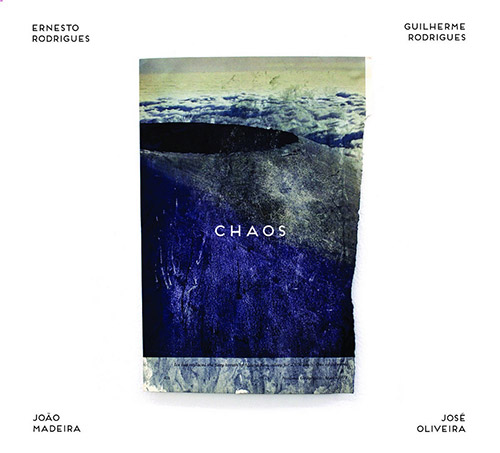
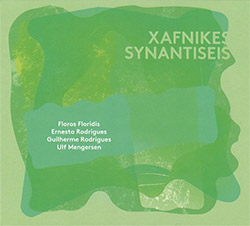
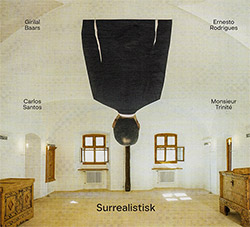
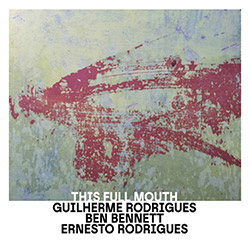
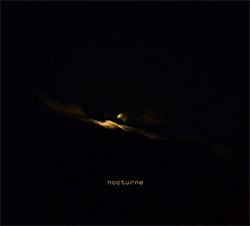


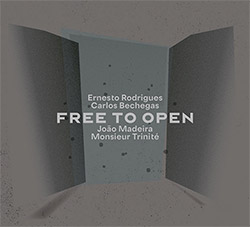
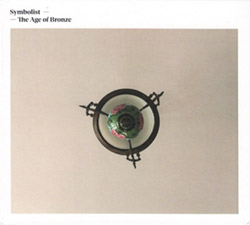
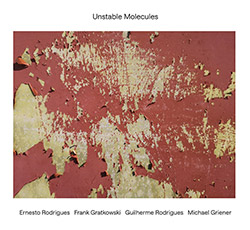




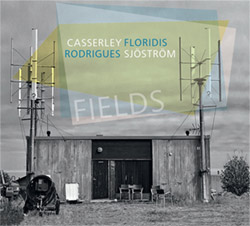
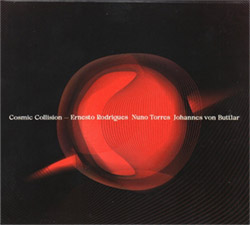



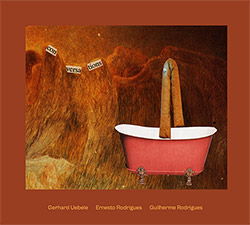


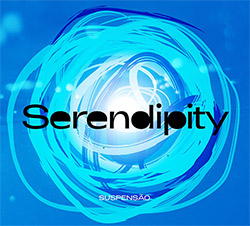


![Guy, Barry / Ken Vandermark: Occasional Poems [2 CDs]](https://www.teuthida.com/productImages/misc4/34849.jpg)
![Novoa / Carter / Mela Trio: Vol.1 [VINYL]](https://www.teuthida.com/productImages/misc4/35236.jpg)


![Elephant9 : Mythical River [VINYL]](https://www.teuthida.com/productImages/misc4/34624.jpg)
![Evans, Peter (Evans / Eldh / Black): Extra [VINYL]](https://www.teuthida.com/productImages/misc4/35279.jpg)

![McPhee, Joe: Straight Up, Without Wings [BOOK]](https://www.teuthida.com/productImages/misc4/35454.jpg)
![Jeck, Philip: rpm [2 CDs]](https://www.teuthida.com/productImages/misc4/35455.jpg)












![Barker / Parker / Irabagon: Bakunawa [VINYL]](https://www.teuthida.com/productImages/misc4/35533.jpg)
![Blaser, Samuel / Marc Ducret / Peter Bruun: Dark Was The Night, Cold Was The Ground [VINYL 10-inch]](https://www.teuthida.com/productImages/misc4/35492.jpg)







![Warren, Kenny (Warren / Hoffman / Ellman): Sweet World [VINYL]](https://www.teuthida.com/productImages/misc4/35451.jpg)




![Blake, Ran / Dave Knife Fabris: Live Amsterdam 2006, First Visit [CD + POSTCARDS]](https://www.teuthida.com/productImages/misc4/35275.jpg)












![DNS: Taking Big Bites Of The Khandas Three Cafes Deep [2 CDs]](https://www.teuthida.com/productImages/misc4/35334.jpg)




![Cleaver, Gerald: The Process [VINYL]](https://www.teuthida.com/productImages/misc4/34966.jpg)




![Alva Noto: HYbr:ID II [VINYL 2 LPs]](https://www.teuthida.com/productImages/misc4/35201.jpg)

![Baron, Derek / Luke Martin: Distinct and Concealed [CASSETTE + DOWNLOAD]](https://www.teuthida.com/productImages/misc4/35079.jpg)

![Lyle, Erica Dawn : Colonial Motels [CASSETTE + DOWNLOAD]](https://www.teuthida.com/productImages/misc4/35080.jpg)









![Sanna, Claudio: Compositori Sardi Contemporanei II [2 CDs]](https://www.teuthida.com/productImages/misc4/35317.jpg)







![Zurria, Manuel: Fame di Vento [3 CDs]](https://www.teuthida.com/productImages/misc4/35167.jpg)

![Granberg, Magnus / Nattens Inbrott / Skogen: Holde Traume, Kehret Wieder! [2 CDs]](https://www.teuthida.com/productImages/misc4/35038.jpg)
![Frey, Jurg: Outermost Melodie [2 CDs]](https://www.teuthida.com/productImages/misc4/35039.jpg)

![Pavone, Jessica: Reverse Bloom [VINYL]](https://www.teuthida.com/productImages/misc4/34895.jpg)




![Modney (Modney / Wooley / Gentile / Roberts / Pluta / Symthe / ...): Ascending Primes [2 CDs]](https://www.teuthida.com/productImages/misc4/34852.jpg)









![Elephant9 with Terje Rypdal: Catching Fire [VINYL 2 LPs]](https://www.teuthida.com/productImages/misc4/35355.jpg)
![Deerlady (Obomsawin, Mali / Magdalena Abrego): Greatest Hits [VINYL]](https://www.teuthida.com/productImages/misc4/34876.jpg)




![Haino, Keiji: Black Blues [2 CDs]](https://www.teuthida.com/productImages/misc4/35109.jpg)



![Surplus 1980: Illusion of Consistency [CD]](https://www.teuthida.com/productImages/misc4/35069.jpg)
![Staiano, Moe: Away Towards the Light [VINYL + DOWNLOAD]](https://www.teuthida.com/productImages/misc4/35037.jpg)



![Caveira (Gomes / Sousa / Abras / Ferrandini): Ficar Vivo [VINYL]](https://www.teuthida.com/productImages/misc4/34643.jpg)
![Gregg, J. J. / David Van Auken: Lunar Prairie [CD w/ DOWNLOAD]](https://www.teuthida.com/productImages/misc4/34611.jpg)

![Coultrain: Mundus [VINYL]](https://www.teuthida.com/productImages/misc4/32439.jpg)
![Mattin: Songbook #6 [VINYL]](https://www.teuthida.com/productImages/misc4/27317.jpg)
![Punkappella: Wake Up [7-inch VINYL]](https://www.teuthida.com/productImages/misc4/17519.jpg)
![Residents, The: WARNING: UNiNC.: Live And Experimental Recordings 1971-1972 [VINYL 2 LPs]](https://www.teuthida.com/productImages/misc4/31521.jpg)
![Coultrain: Phantasmagoria [VINYL]](https://www.teuthida.com/productImages/misc4/30142.jpg)
![Lennon, Sean Ono: Asterisms [VINYL]](https://www.teuthida.com/productImages/misc4/34517.jpg)

![Coley, Byron: Dating Tips for Touring Bands [VINYL]](https://www.teuthida.com/productImages/misc4/17906.jpg)

![Lost Kisses: My Life is Sad & Funny [DVD]](https://www.teuthida.com/productImages/misc4/lostKissesDVD.jpg)